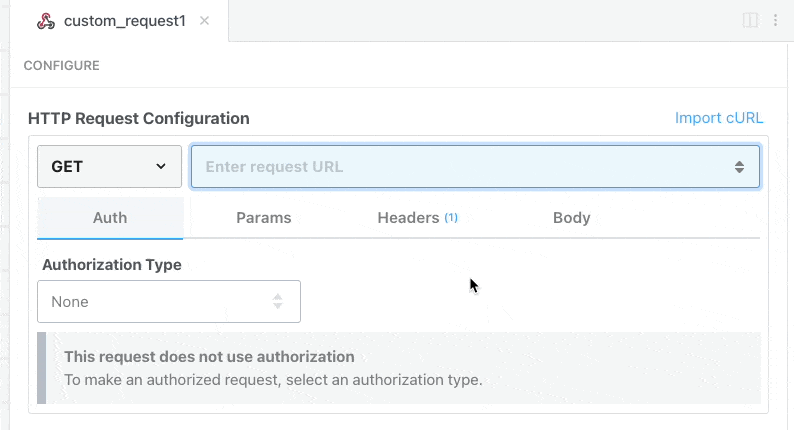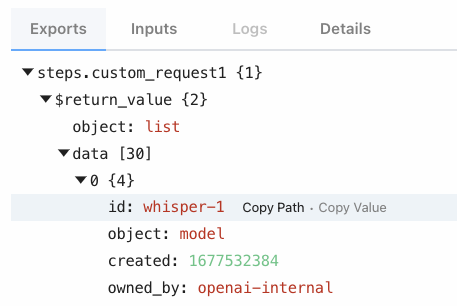What do you want to automate
with HTTP / Webhook and Imagga?
Prompt, edit and deploy AI agents that connect to HTTP / Webhook, Imagga and 3,000+ other apps in seconds.
Trusted by 1,000,000+ developers from startups to Fortune 500 companies
Popular Ways to Connect HTTP / Webhook with Imagga#
Popular HTTP / Webhook and Imagga Triggers#
Get a URL and emit the full HTTP event on every request (including headers and query parameters). You can also configure the HTTP response code, body, and more.
Get a URL and emit the HTTP body as an event on every request
Emit new event when a batch of images has been processed for categorization, tagging, or color extraction.
Emit new event when the content of the URL changes.
Popular HTTP / Webhook and Imagga Actions#
Assign a category to a single image based on its visual content. See the documentation
Send an HTTP request using any method and URL. Optionally configure query string parameters, headers, and basic auth.
Analyzes a batch of images for categorization, tagging, or color extraction. See the documentation
Send an HTTP GET request to any URL. Optionally configure query string parameters, headers and basic auth.
Send an HTTP POST request to any URL. Optionally configure query string parameters, headers and basic auth.
Overview of HTTP / Webhook#
Build, test, and send HTTP requests without code using your Pipedream workflows. The HTTP / Webhook action is a tool to build HTTP requests with a Postman-like graphical interface.

Point and click HTTP requests
Define the target URL, HTTP verb, headers, query parameters, and payload body without writing custom code.

Focus on integrating, not authenticating
This action can also use your connected accounts with third-party APIs. Selecting an integrated app will automatically update the request’s headers to authenticate with the app properly, and even inject your token dynamically.

Pipedream integrates with thousands of APIs, but if you can’t find a Pipedream integration simply use Environment Variables in your request headers to authenticate with.
Compatible with no code actions or Node.js and Python
The HTTP/Webhook action exports HTTP response data for use in subsequent workflow steps, enabling easy data transformation, further API calls, database storage, and more.
Response data is available for both coded (Node.js, Python) and no-code steps within your workflow.

Connect HTTP / Webhook#
// To use any npm package on Pipedream, just import it
import axios from "axios"
export default defineComponent({
async run({ steps, $ }) {
const { data } = await axios({
method: "GET",
url: "https://pokeapi.co/api/v2/pokemon/charizard",
})
return data.species
},
})
Overview of Imagga#
The Imagga API is a powerful image recognition tool that enables you to automate the process of analyzing and tagging images. With its AI-driven capabilities, you can extract a wealth of information from visual content. It offers features such as categorization, color extraction, and auto-tagging, making it incredibly useful for building workflows that require image analysis.
Connect Imagga#
import { axios } from "@pipedream/platform"
export default defineComponent({
props: {
imagga: {
type: "app",
app: "imagga",
}
},
async run({steps, $}) {
return await axios($, {
url: `https://api.imagga.com/v2/usage`,
auth: {
username: `${this.imagga.$auth.api_key}`,
password: `${this.imagga.$auth.api_secret}`,
},
})
},
})
Community Posts#

